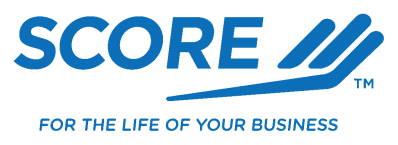Spot and Solve Business Problems With the Internet
Quick changes can reduce marketing costs or offer a different product line
There are many reasons to create a website to take your business online. You can use your site to reduce your marketing costs to geographically diverse locations, to open new sales channels or to enhance customer service. You can also use it to extend your current business into an entirely different product line or to project a professional image.
Reduce Sales and Marketing Costs
A website broadens your reach far beyond normal physical constraints by making information about your business available to anyone with access to a computer and an Internet service provider — which translates into millions of people around the world. You can provide up-to-date information 24 hours a day, seven days a week without the costly reprinting associated with brochures or the long-distance charges and travel expenses of contacting your customers directly.
Your website can extend the value of the marketing dollars you already spend. You can include your website URL on your collateral marketing materials so that potential customers will have a convenient way of getting the information they need to make a purchasing decision. You can offer specials without the expense of mailing campaigns.
If your site is designed to process orders, you can make sales regardless of the date, time of day or current staffing levels without incurring the extra costs of toll-free calls, regional sales offices or distribution centers.
Open New Sales Channels
Websites allow you to explore new ways to sell products. For wholesalers, it can open a new retail channel. For local businesses, national and international sales are now more attainable. For vendors of specialty products, the diverse client base on the Web makes selling their products more feasible. And potential customers can find your products regardless of whether or not you count them in your target customer base or intentionally market to them.
In StrikingItRich.com, Jaclyn Easton's book of 23 e-commerce case studies, The International Golf Outlet discovered that Japanese businessmen would pay seemingly cost-prohibitive shipping rates to get new golf equipment as soon as it became available in the U.S. market. This sales channel would have never been available had it not been for the Web.
Enhance Customer Service
Even if you don't sell your products or services online, a web site can be a useful, cost-effective tool for customer service. Most sites feature FAQs — answers to frequently asked questions — that enable them to provide timely answers to most customer questions. Many also feature email links to customer support personnel, which can reduce the expense of toll-free calls. If you sell your products online, you can confirm orders electronically. You can also offer your customers the ability to check the status of their orders or accounts or handle transactions anytime. Offering your customers convenience makes them more loyal.
Learn About Your Customers' Needs
Your website can help you find out more about who your customers are and what they want. You can gather information about your customers from online forms and surveys, or from observing what parts of your site people visit and how they find your site. This can help you focus on what's important to your customers and allow you find out quickly whether a new product feature or program is of interest.
Offer New Products
The Internet has proved to be a fertile ground for experimentation. Many companies have found the Web to be a place where it's safe to offer new products or move into entirely new businesses. The ease of posting pages to a website — and the ability to gather instant information about how customers react to new product offers — lets you test-market goods and services in a way never before possible. While many companies big and small are sticking to their traditional products, many are using the Web to move into new areas.
Make a Stronger First Impression
By leveraging technology, small businesses can project the professional image of being a larger company. The way your site handles Web technology — serving up pages, accepting orders, incorporating dynamic and interactive features — can easily leave visitors with the impression that your small business is much larger than it really is.
Take WorldSpy. This company gives the impression of a large shopping mart, when it's actually staffed by only a handful of marketers and programmers. WorldSpy connects manufacturers directly to express delivery services, which drop-ship products to WorldSpy customers at low prices and high margins.
Your company's website is a tool that can reduce your business costs while improving your marketing efforts, generating new sales and better serving your customers. Creating a website can present you with an opportunity to think strategically about how to expand your core business and the kinds of new products and businesses avenues you might want to explore, as well as the image you want to project.


